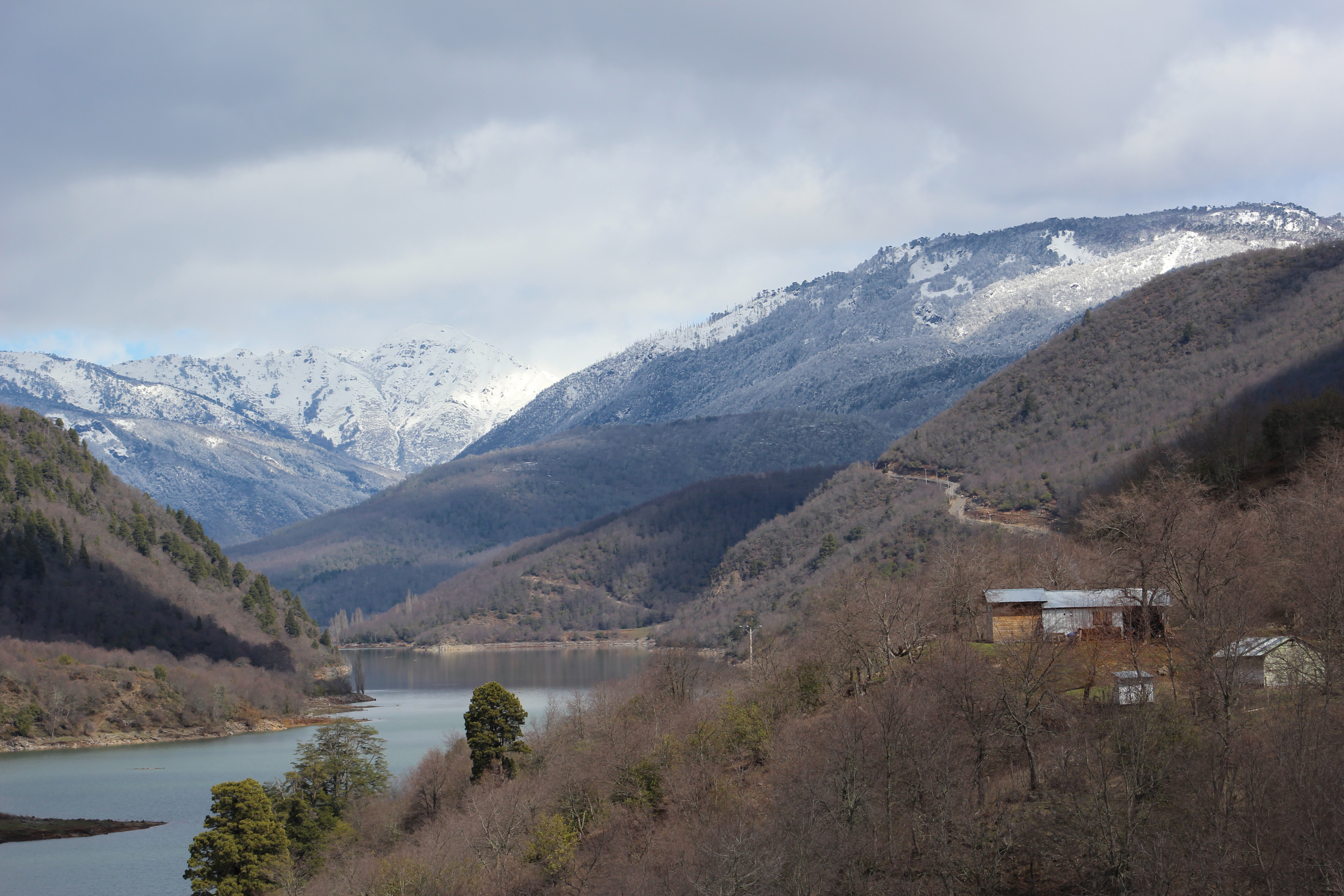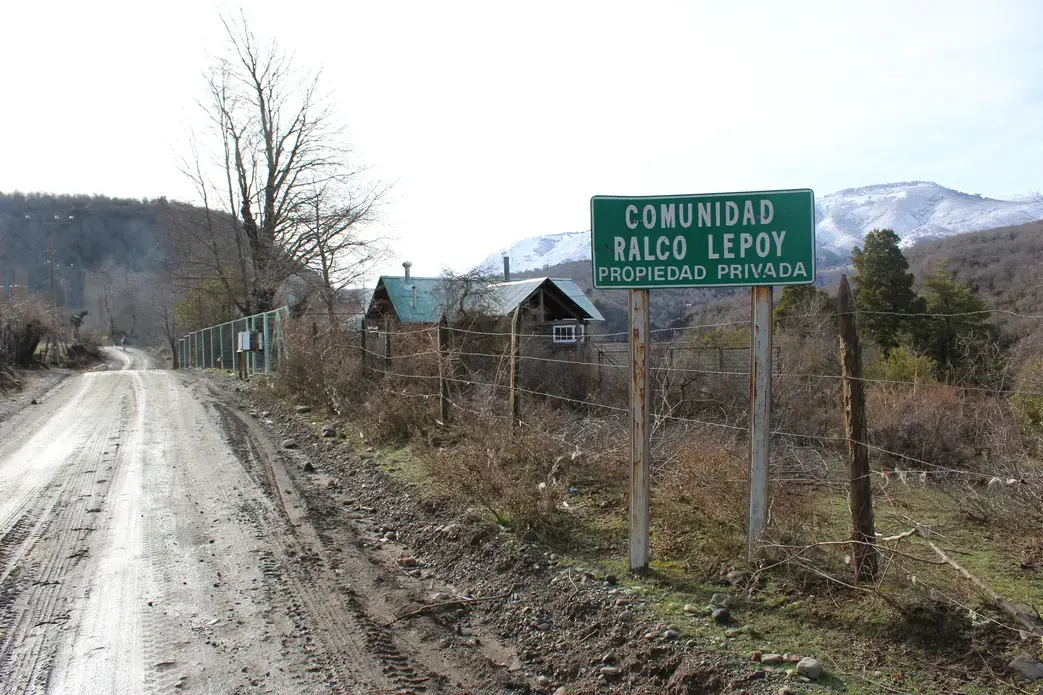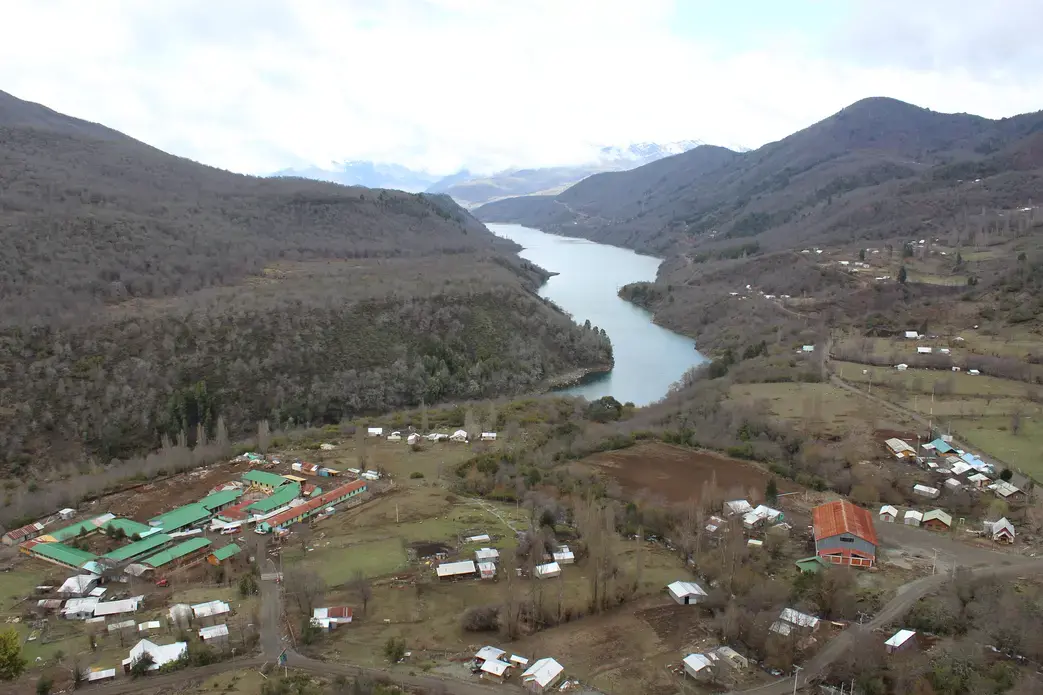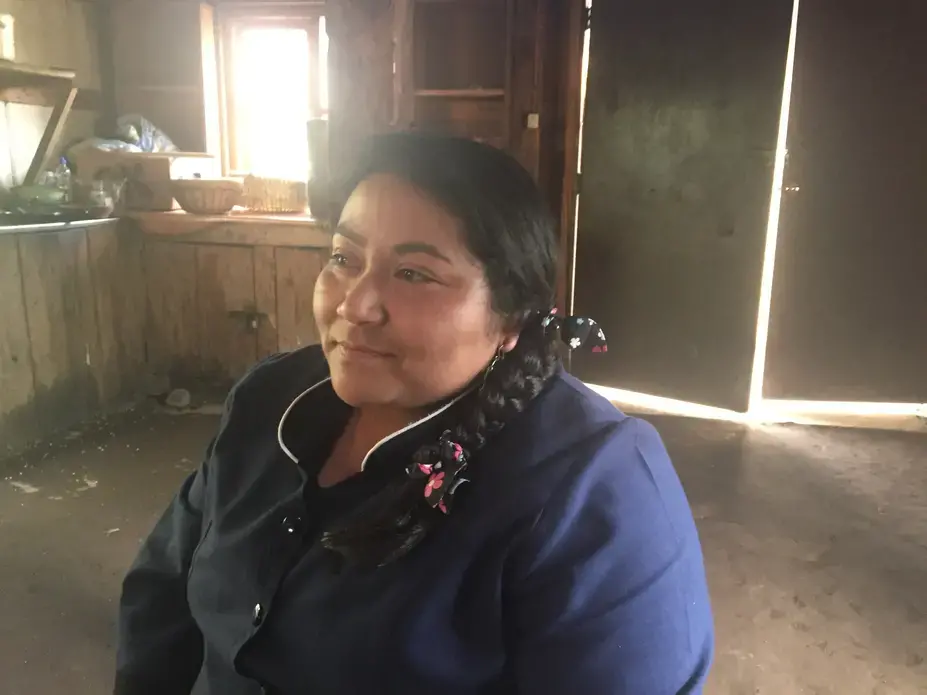A crowded bus of indigenous Mapuche has been climbing up a rocky pass cut into the steep incline of the Andes Mountains for over an hour—engine popping and skipping, other mechanisms whirring, struggling and eventually giving out. The bus lurches to a stop. The driver puts on a mechanic's suit and goes out into the dark rain to fiddle under the vehicle. Women try to stay comfortable beside their sacks of wheat, drunk old men stumble through the aisles impatiently and children fidget.
A short squat woman near the front, however, sits quietly with a smile on her face. This is what Pamela Gutierrez signed up for. But then again, it isn't.
The bus is supposed to be headed to Ralco Lepoy and then El Barco—small indigenous communities of Mapuche in Alto Bío Bío, one of the poorest regions of Chile. The Mapuche are the country's largest minority group and, like the minorities of so many other countries around the world, they have faced the toils of colonialism, the ethnocide that comes with government expansion and the discrimination born out of such a history.
Gutierrez, 35, discovered she had Mapuche blood in her last year of college and has spent the seven years since trying to embrace a culture that had previously only existed in the periphery of her life.
Growing up, Gutierrez had been kept in the dark about being one-half Mapuche because her mother never talked about it.
"She doesn't want me to learn about Mapuche things," Gutierrez has concluded. "I have asked for an explanation, and it's always a fight. We don't talk about it in the house anymore."
Gutierrez says she attributes this silence to some source of maternal instinct, a way for her mother to shield her daughter, perhaps, from the racism felt by the indigenous peoples of Chile. But she thinks it might also have been an attempt to distance the family from the violence many Mapuche had begun resorting to in response to this racism.
In the 1990s, the Chilean government started to return land to people who identified as Mapuche—a statistic that drastically increased as a result. In many ways it encouraged violent protests, because the government's attempt to quantify ethnicity called into question who counted as Mapuche and who did not, and who deserved land and who had been "cheated" out of it.
On television, Gutierrez saw people burning cars, government outposts and Chilean flags.
But she says she always viewed these incidents as responses to a problem that wasn't hers. So when Gutierrez got older, she traveled around South America and the United States on Christian mission trips, whose ideology was in many ways entirely separate from those held by the indigenous ancestors she would come to learn about later in her life.
Only a death in the family in 2008 could bring the truth out of her mother, causing Gutierrez to venture to a small rural community outside of Temuco for the first time. Her grandmother came to the door wearing traditional Mapuche clothing—the long silver metal of a trapelacucha jingling against her chest, and a multi-colored scarf protecting her hair.
They stood in the door with a silence lingering between them before Gutierrez, being the bubbly and excited person she is, broke through the silence of lost years and hugged her grandmother. It was as if there were an immediate connection between them—the one felt among those who share a deep history—even if there was no way for them to communicate it. Gutierrez's grandmother only spoke Mapudungun.
But Gutierrez, thrilled at the newness of her connection to the Mapuche world, began to learn the indigenous language herself—a difficult one for Spanish speakers because it incorporates an additional vowel sound—a deep, nasal "u"—into its alphabet.
Equally difficult was learning about a culture whose history had been passed down orally. Despite the books Gutierrez checked out from the library, she ultimately decided the only way to embrace the Mapuche part of her was to live within it. After Gutierrez's mother forbade her from moving near her grandparents, she began teaching at the middle school in Ralco Lepoy in hopes of adopting its Mapuche community as her own.
Teachers travel from all over Chile to work at Alto Bío Bío School G-1181—from Santiago in the North, Temuco in the south, Concepción on the coast. Gutierrez lives four hours away in Los Angeles, and travels to the school every Sunday night to teach through the week before returning home on Friday afternoon.
That's why she's sitting on this bus on the side of the road, waiting for the driver to fix whatever new mechanical problem it seems to have this time. It's Sunday, which means tomorrow Gutierrez starts another week of teaching, of learning the language, of celebrating annual Mapuche holidays. It also means, as the difficult bus trip would seem to indicate, that it will be another week of dealing with the problems this rural mountain community is facing.
The women bring back these sacks of wheat from the city because their land is nearly infertile. The drunken men now babbling to themselves in the back are, health officials believe, one product of years of cultural degradation. And the children fidgeting in their seats—most concerning to Pamela—are the ones who will come to school tomorrow with the weight of these problems on their futures.
Reports from the local municipality list the number of residents with incomplete schooling at 63 percent. Nineteen percent have never attended school, compared with the Inter-American Development Bank's findings of 3 percent nationwide.
The Mapuche of Alto Bío Bío rely largely on agriculture and livestock for their sustenance, so the notion of sending a child to school has been at odds with keeping an extra set of hands to help around the house, or with the livestock. It's a problem education officials said they struggle with every school year.
When Gutierrez visits families to inquire about a child's absence, it often puts her in a difficult position because she must pit her personal investment in learning about Mapuche culture with the fundamental beliefs she holds about maintaining professionalism as a teacher—to be part of the community without quite being part of it.
"Other people will say I am not Mapuche," Pamela sometimes worries—or that they will tell her, "Maybe you shouldn't be speaking Mapudungun.'"
But often, it is the indigenous people who don't want to speak Mapudungun, because their self-perception has diminished over generations, especially in the eyes of young people. Julie Calpán, 12, doesn't want to learn the language at all, her parents said, because she plans to move to the city when she's older, where being noticeably indigenous can cause setbacks.
Many of these attitudes can be altered early on, in school, Gutierrez believes. Textbooks, for example, say the indigenous people of Chile were nomads and had existed—as if they no longer do—and as a result, part of Gutierrez's job involves countering this kind of subtle discrimination. Each Mapuche holiday becomes a major event in the school, and even normal days are spent time infusing the curriculum with traits of an identity she is still trying to cultivate in herself.
"It's an equilibrium, these two parts of my life," Pamela says. "I am still learning about Mapuche beliefs, but I know I have two things that are mine and I feel complete with both parts, together."
Both parts, even if they are, at times, the easy and the difficult, are what make Gutierrez who she is. And so her smile grows even bigger as the driver climbs back on the bus, restarts the engine, and continues up mountain toward Ralco Lepoy.









